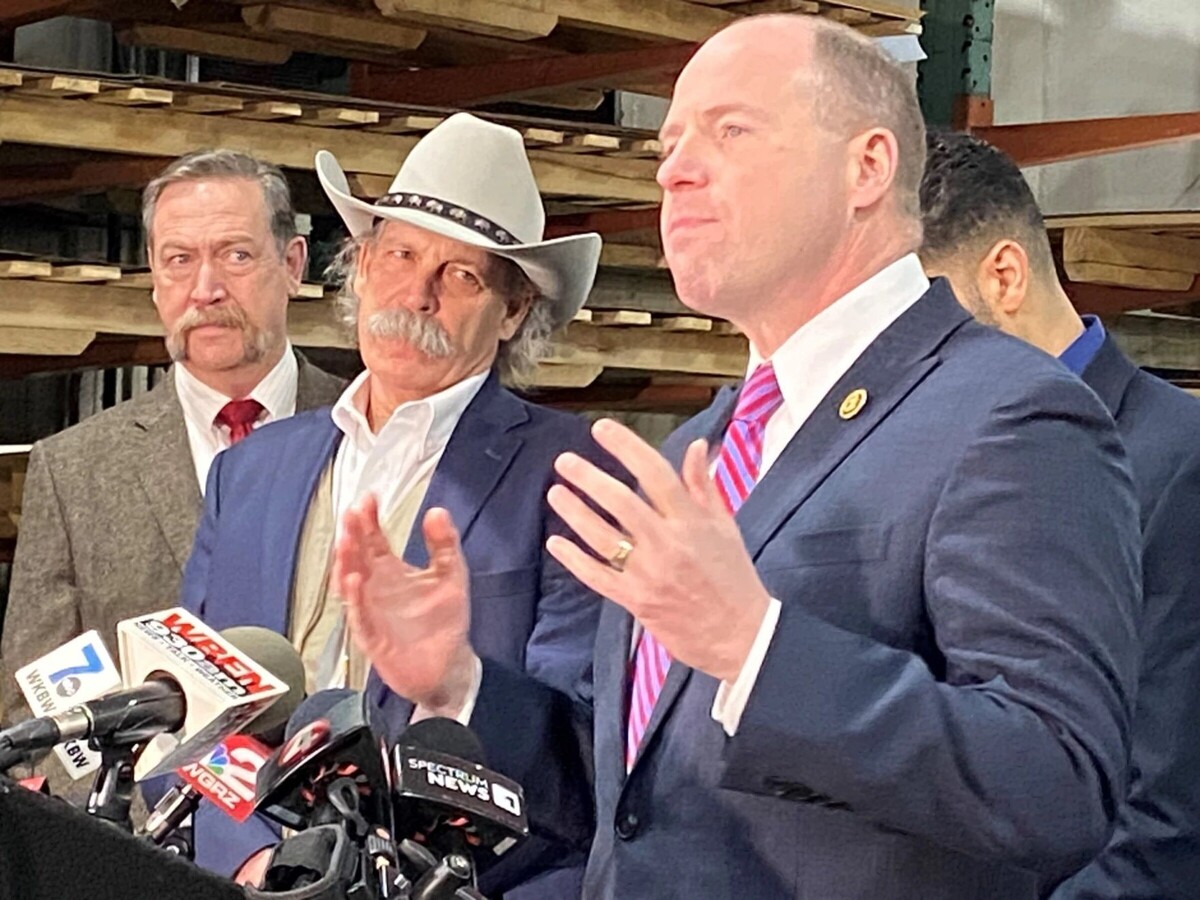Image

By Jim Fink
WBFO
Since the 1800s, the flow of goods and services between Canada and the U.S. has been an economic anchor for both countries. But that relationship is at risk by the new 25 percent tariffs President Trump has imposed beginning Feb. 1.
Everything from lumber, wheat, grain, steel -- even hockey and lacrosse equipment will be subject to the new tariff. Trade professionals and local officials warn a blanket tariff will impact most people’s wallets in some way, shape, or form.
And, with Canada threatening to retaliate, the cost of goods could increase even more. In other words, people across the region and across the two countries could be those most impacted in a trade war.
Rep. Tim Kennedy is concerned. He is not alone.
“We are ultimately on the brink of a full-scale trade war with Canada because of a unilateral decision by the President of the United States to put forward a 25% tariff that is going to impact consumers, especially along the northern border with Canada, like places here in Western New York. But not exclusively. This is going to drive up the costs of goods and services all across the country,” Kennedy said.
Consider this:
According to the Canadian Consulate, each day $241 million of goods crosses from Canada to the U.S. on the Peace Bridge and Lewiston-Queenston Bridge.
In 2023, 940,000 trucks crossed from the U.S. into Canada across those two bridges while 890,000 trucks came from Canada to the U.S. across those two bridges.
Estimates from the Canadian government put jobs reliant on trade in parts of Western New York at 27,000.
All of that translates to big business, says Dottie Gallagher, Buffalo Niagara Partnership president and CEO.
“This is not just about impacting businesses. Increasing costs in businesses flow down to increased costs to consumers, and that's something we all need to be aware of,” Gallagher said. “We have an incredibly integrated economy. Ask the Sabres and the Bills the number of season ticket holders they have that are Canadian. We cross this border, every day, and quite frankly, we treat it like a bridge, not a border, and the disruption that these tariffs could cause to our economy cannot be understated.”
Small business owners are already concerned. Rigidized Steel owner Rick Smith warns the new tariffs could mean an increase of $500,000 in additional fees for one of their customers.
And, Tim Herzog, Flying Bison Brewing Co. founder, says the new tariffs could increase his costs for wheat and other products by $51,000 annually, and that is a conservative estimate.
“For that we get nothing. The community gets nothing. The United States of America gets nothing. We just pay and pay and pay,” Herzog said.
Mexico is also facing a 25 percent tariff on Feb 1 while China is looking at a 10 percent new tariff under Trump’s executive order.